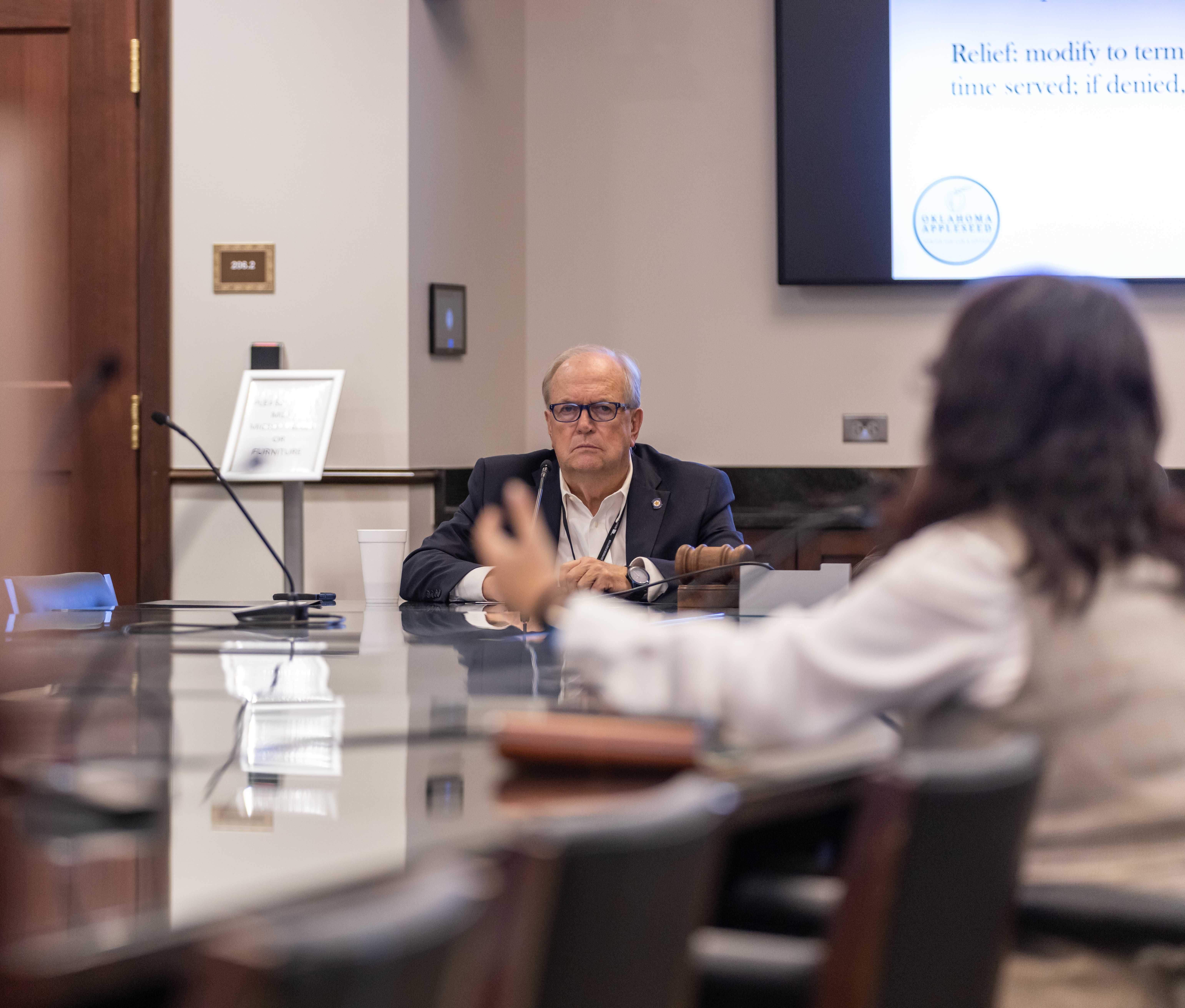Williams Hosts Study on Life Without Parole Sentencing in Oklahoma

OKLAHOMA CITY – Rep. Danny Williams, R-Seminole, hosted interim study IS25-115, Life Without Parole Sentencing Review, which examined Oklahoma’s use of life without parole (LWOP) sentences, including an exploration of second look policies and their economic impact.
The study discussed the growing number of states adopting second look policies, which allow courts to review life or long-term sentences after evidence of rehabilitation.
"My goal for this study was to ask if our current sentencing practices are fair and if not, what a change should look like," Williams said. "There are other states that have implemented second look laws, and Oklahoma could benefit from a similar pathway."
Colleen McCarty, executive director of the Oklahoma Appleseed Center for Law, presented data showing the Oklahoma Department of Corrections’ daily cost per inmate is $67.53, totaling $24,648 annually and nearly $493,000 over 20 years, excluding geriatric healthcare costs. She noted that several states, including California, Colorado, Connecticut, Delaware, Florida, Georgia, Illinois, Maryland, Minnesota, New York, North Dakota, Oregon, Utah and Washington, as well as the Council of the District of Columbia, have adopted second look policies.
McCarty added that Oklahoma’s recently enacted Survivors’ Act reflects similar principles and could serve as a model for future reform.
Under potential proposals, adults serving LWOP sentences could become eligible for review after 20 years if they meet rehabilitation benchmarks, including educational achievements, program completions and positive conduct. Victims and survivors would be notified and given an opportunity to provide input during the process.
For individuals sentenced before age 25, a review could occur after 15 years, with courts considering factors such as youth trauma, maturity and rehabilitation. Denied petitions could be refiled every five years. McCarty estimated that if just 10 people qualified per year, Oklahoma could save roughly $246,000 annually.
The study also included testimony from community members and family members of incarcerated Oklahomans who have been affected by sentencing laws.
"As a Christian, I believe in redemption and forgiveness for everyone, but people must show they’ve done the work to heal and change," Williams said. "They should be given the chance to prove it."
The study took place on Oct. 21 before the House Public Safety Committee at the Oklahoma State Capitol.
